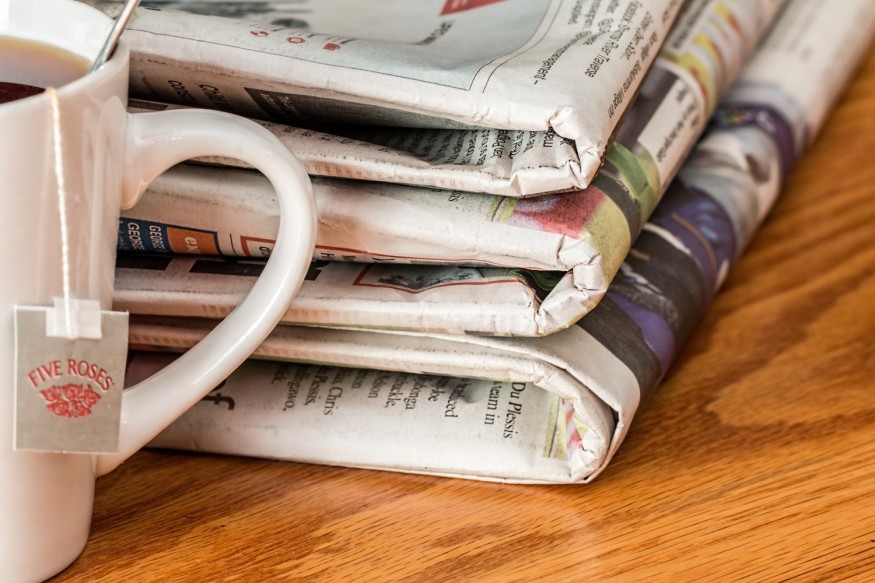
If you're a New Yorker who is currently cleaning your bottles, stack junk mail, and clean your yogurt containers, you might have probably asked yourself this: Do all these recycling efforts make a difference?
Well, yes, but no longer almost as much as it can. According to the city's Department of Sanitation, New York City recycles approximately a fifth of its garbage - 18 percent of trash from houses and about 25 percent from businesses.
Mayor Michael R. Bloomberg, seven years ago, pledged to double the residential recycling rate to 30 percent by 2017.
The numbers fell short of New York's potential. The Sanitation Department said some 68 percent of residential trash and 75 percent of commercial waste could be kept out of the landfill if everything recyclable has been taken care of and recycled.
As city leaders have sought to improve recycling for a long time, New York nonetheless lags behind big cities such as Seattle and San Francisco, which recycles more than half of their waste.
How, though, does a city that promotes itself as a frontrunner on the environment and climate change - and where zero-waste campaign goals to prevent exports of rubbish to far-flung landfills by 2030 - hit upon recycling? Here are seven of the reasons.
1. The city's composting plan is at the back of the schedule
A third of household waste comes from food scraps and garden rubbish. Those are natural materials that could be composted and become fertilizers or biogas and used to produce energy.
Mayor Bill de Blasio had vowed in his first term to make the composting program citywide by 2018 but has been placed its implementation on hold.
Many neighborhoods do no longer even have the option to h composting bins, and only the biggest restaurants are required to separate food scraps.
Specialists say the more significant part of the problem is money. Recycling paper and glass can be profitable for the city that relies on markets; however, to date, composting costs more than it could earn.
2. Most public housing devices lack conveniently placed recycling bins
Trash segregation became a requirement for the locals in 1989. However, Politico said around 15 percent of New York City Housing Authority complexes had recycling bins by 2015.
Public housing occupants in Brooklyn's Brownsville section threatened a lawsuit against the town that year for failing to provide recycling bins, and the city promised to place some outside all complexes in a year.
New York's almost 400,000 public housing residents recycle less than 2 percent in their household waste. Recyclables swell the usual rubbish, contributing to overflowing trash cans and chutes.
3. Politicians are cautious of requiring more recycling
Cities with higher recycling rates generally tend to have harder mandates and enforcement than in New York. Residents in some European cities, for instance, are paid for every bag of trash and recyclables accrued. The Europeans are provided incentives now not just to tolerate waste, but to buy less and reuse more.
Corey Johnson, the New York City Council speaker, said the city had called such a requirement a "nonstarter." The fine charged to landlords for failing to recycle $25 per violation, and recycling advocates say inspections are inadequate.
4. Markets are bearish on recycled materials
Kathryn Garcia, New York's sanitation commissioner, said the city had been vastly insulated from the market swings because half of its residential paper and cardboard waste goes to a paper mill on Staten Island. The mill recycles the materials locally, making the city much less structured on promoting them overseas.
However, Teamsters New York president Sean Campbell said industrial rubbish collectors are less likely to separate cardboard from the trash when the marketplace is low.
"You'll see scavengers driving round in pickup trucks, selecting up cardboard to sell when the market is high," Campbell explained.
5. New Yorkers love consumerism and convenience
A discussion on recycling might be incomplete without acknowledging that many New Yorkers have the ability to have anything delivered in days or hours as their digital right and part of the city's identity. That means greater takeout boxes and cardboard boxes.
© 2025 NatureWorldNews.com All rights reserved. Do not reproduce without permission.





